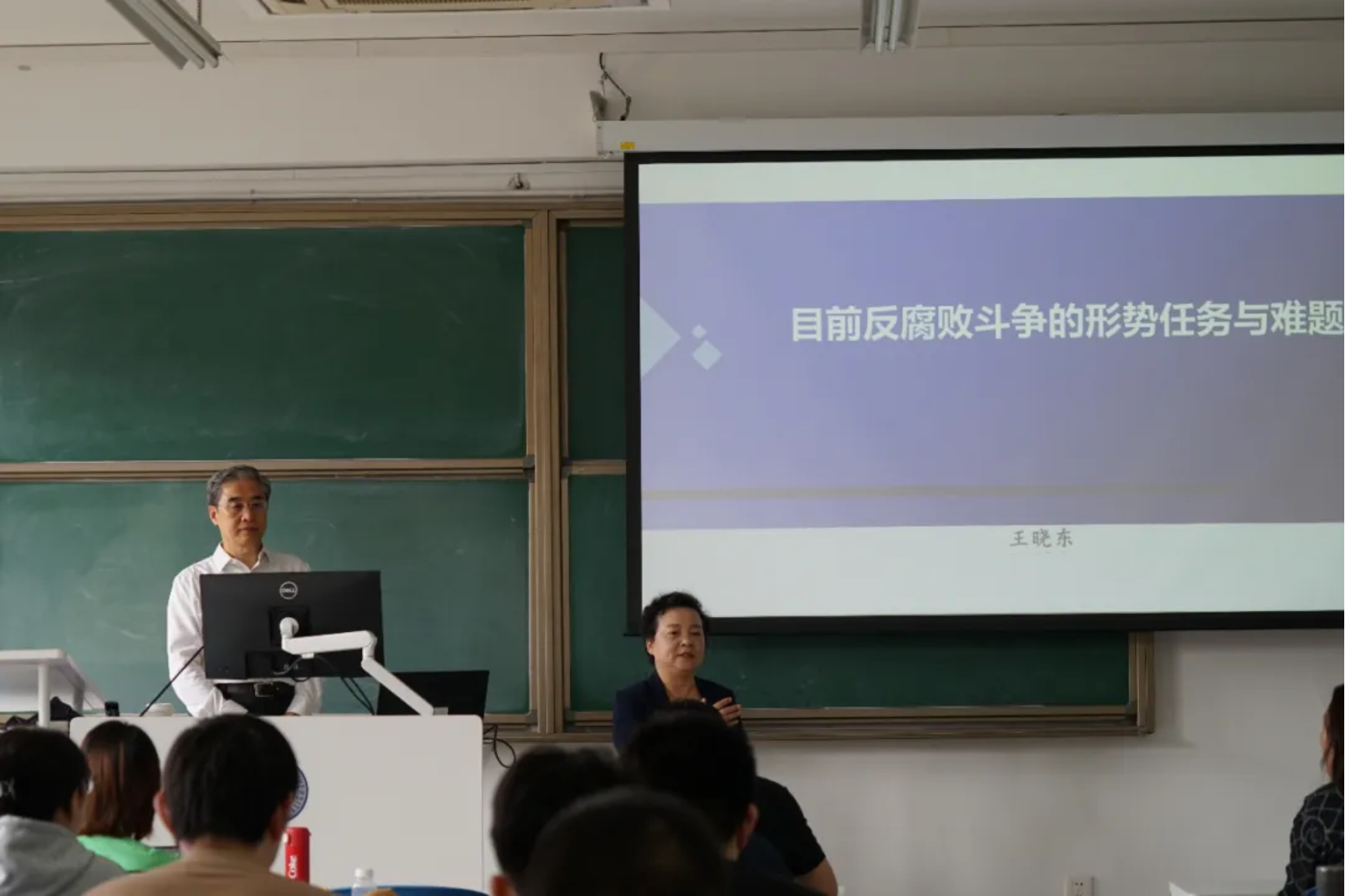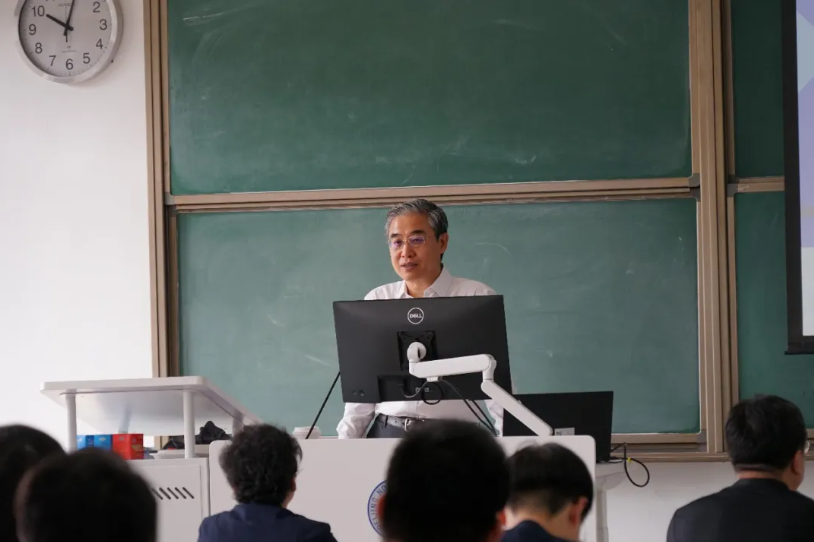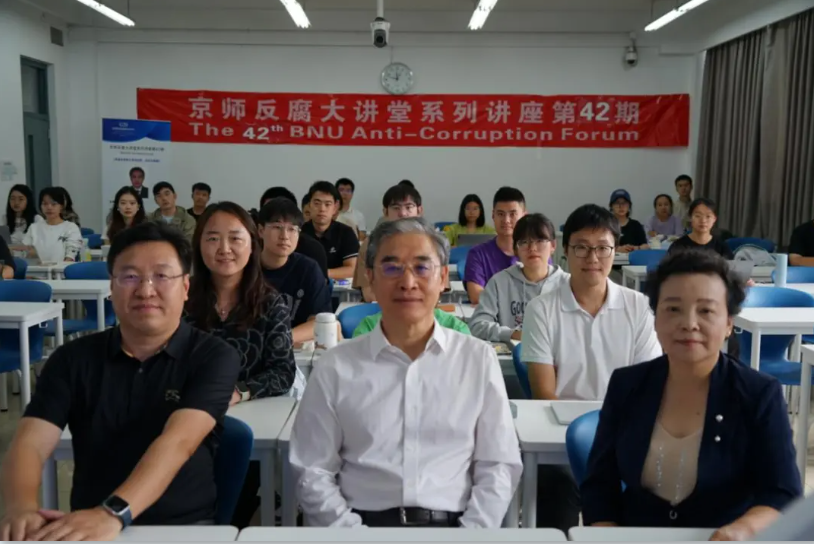
On September 18, the 42nd session of the BNU Anti-corruption Lecture Series was successfully held at Beijing Normal University. The lecture was given by Wang Xiaodong, former chief judge of the Second Criminal Trial Division of the Supreme People's Court, with the title of "The Current Situation, Tasks, and Challenges in the Fight Against Corruption". The lecture was hosted by Professor Wang Xiumei from the Law School of Beijing Normal University. More than 40 teachers and students, including Professor Yin Jianfeng, Vice Dean of the Law School of Beijing Normal University, Associate Professor Zhao Chengguang, and Lecturer Li Di, attended the lecture.
Professor Wang Xiumei began by extending her heartfelt thanks to Chief Judge Wang Xiaodong for his enlightening lecture. She went on to highlight Chief Judge Wang's extensive professional background and his distinguished contributions to the realm of duty crime adjudication. Professor Wang expressed her hope that the students would engage in serious study, active contemplation, and develop their own perspectives on the challenges inherent in the battle against corruption

Chief Judge Wang Xiaodong commenced his lecture by assessing the current state of job-related crime trials. He noted the substantial progress China has made in combating corruption, elaborating on three key dimensions: the adjudication of official malfeasance, the pursuit of international fugitives and asset recovery, and the management of corporate corruption abroad. Nonetheless, he also emphasized that the ongoing struggle against corruption remains acute and intricate. Consequently, the pressing challenge at hand, he stated, is to refine our political posture, heighten our awareness of latent risks, and to bolster our capacity for situational assessment and the construction of anti-corruption efforts.

Subsequently, Judge Wang Xiaodong analyzed the specific tasks and challenges in the trial of different types of crimes from three dimensions: corruption related crimes, bribery related crimes, and dereliction of duty related crimes. He also pointed out that the overall goal and task of the current trial of job-related crimes should adhere to the principle of "implementing comprehensive rule of law, which is a profound revolution in national governance. We must implement scientific legislation, strict law enforcement, fair judiciary, and universal compliance." The short-term goal and task are to achieve the connection between discipline and law, the interconnection between laws, crackdown on corruption and bribery crimes, and investigate dereliction of duty crimes. In terms of the basic ways to achieve specific tasks, he pointed out the need to strengthen learning and training, and constantly summarize experience through practice, adapt to new situations, and solve new problems.
In his concluding remarks, Chief Judge Wang Xiaodong addressed the complex issues inherent in the trial of job-related crimes. He underscored the inextricable link between such crimes and economic progress, the fluid and resilient nature of the demarcation between job-related offenses, and the necessity for a harmonious blend of legal theory and practice. Chief Judge Wang emphasized the integration of criminal and civil law, the importance of restraint in the application of criminal law, and the categorical prohibition of using evidence obtained through torture or its subtler forms to elicit confessions. He also delved into the challenging question of how to ascertain, in practice, that corruption offenses have resulted in significant harm to the national and public interest.
Throughout the lecture, both faculty and students engaged enthusiastically with the subject matter, posing questions to which Chief Judge Wang Xiaodong provided thoughtful and detailed responses. His lecture was a vivid, insightful, and profound exploration of the interplay between theory and the practical application of the rule of law, offering us immense educational value.![]()

